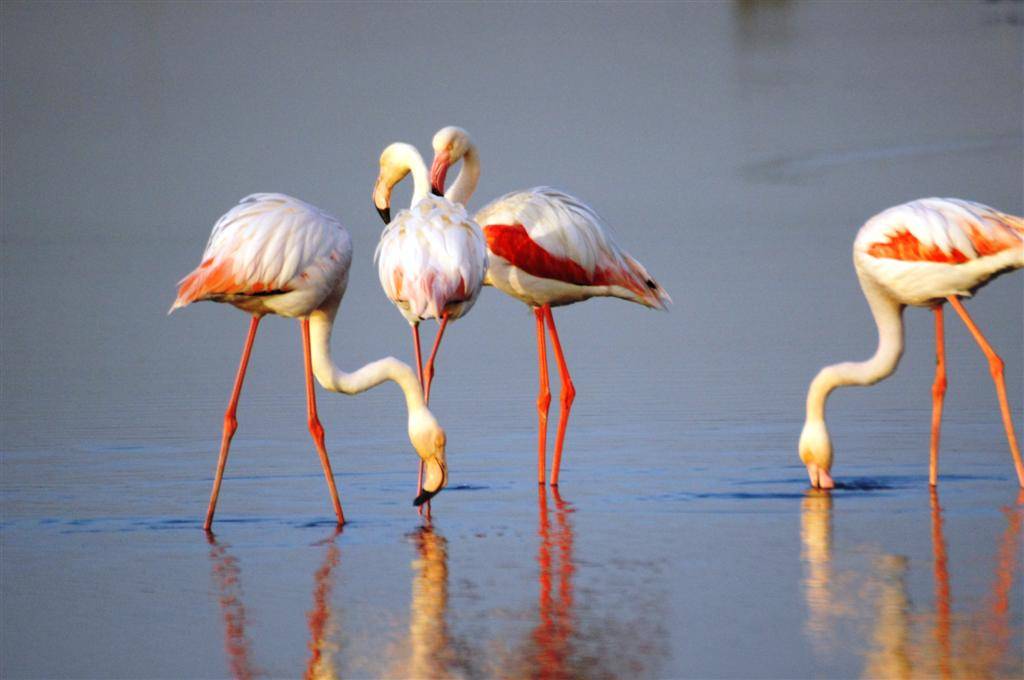The water provides them snails, crustaceans, crabs, algae and several types of micro fauna…reports Asian Lite News
The waters of Pulicat Lake Bird Sanctuary located in Tamil Nadu and Andhra Pradesh are abuzz with activity. With winter setting in, the migratory visitors have started arriving at the lake to spend their winter there. The movement of these birds starts in November and they stay here till April after which they start going back.
Pulicat Lake is the second biggest brackish water lake after Chilika in Odisha.
While only a small portion of the lake is situated in Tamil Nadu – 10 per cent – Flamingos and Terns are already making their presence felt. Another star attraction, the Pelicans too are expected soon.
Other birds which are expected to visit this lake include Pond Heron, Little Stint, Curlew, Herring Gull, Sand Piper, Ducks, Little Cormorant, Common Teal, Blue Jay, Night Heron, Spot-Billed Pelican, White Ibis, Open Billed Stork, and many others. These birds come from faraway places including Tibet, Ladakh, Siberia, China, Australia and Nigeria.
These guests are welcomed by the local residents, including fisherfolks and farmers.
“People associate large turnout of birds with better catch of fishes,” observed Prasanth E., Wildlife Warden, Chennai. “The presence of the birds and their droppings help in rejuvenating the lake, thereby increasing the catch also,” said the Indian Forest Officer.
While there is not much breeding on this side of the lake it does provide a large feeding ground and that is what attracts the birds in droves. The reason for this is the large area covered by the lake and the depth of the water. Talking to India Narrative, Prasanth said: “The water is spread over a wide area and it is only a foot deep allowing the birds to access a variety of food in a bigger area and enabling them to see their prey easily and catch them standing comfortably.”
The water provides them snails, crustaceans, crabs, algae and several types of micro fauna.
Besides these features which make Pulicat special, the area also provides a secondary source of food to the birds. The paddy fields around the lake provide insects and worms in abundance.
ALSO READ-Abu Dhabi launches new portal on waterbird populations









